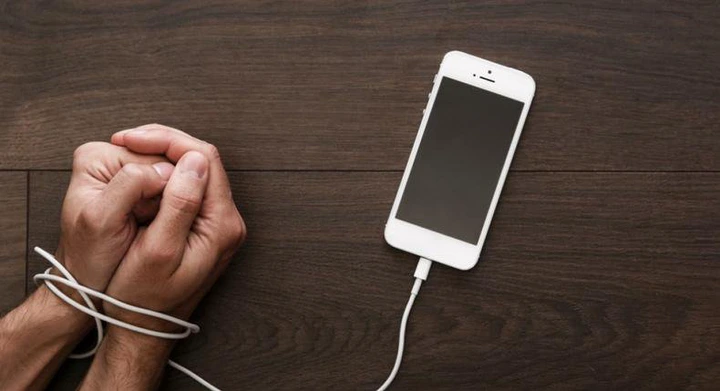These days, our phones are practically glued to our hands.
You’re at dinner with friends, and suddenly, everyone’s glued to their phones. Maybe you check yours too, just to see that hilarious reel your cousin sent. Next thing you know, the food’s cold and the conversation’s gone quiet.... CLICK TO READ THE FULL NEWS HERE▶▶
Or, you’re finally snuggled in bed, ready for a good night’s sleep, but you can’t resist scrolling through endless social media feeds. Suddenly, it’s an hour later and you’re wide awake!
Our smartphones are amazing tools, but sometimes, they can feel more like little distractions that mess with our lives.
Let’s explore five ways our phones might be subtly causing problems, and how we can take control and make them work for us instead of the other way around.

How often do you check your phone before bed? The blue light from the screen can interfere with your sleep by suppressing melatonin, the hormone that regulates sleep.
The blue light from the screen can interfere with your sleep [HuffPost]
This can make it harder to fall asleep and lead to poorer sleep quality. When you stay up late scrolling through social media or watching videos, you’re not giving your body the rest it needs.
Constant connectivity can lead to increased anxiety and stress. The need to stay updated and respond to messages immediately can make you feel overwhelmed. Social media can also contribute to feelings of inadequacy and anxiety as you compare your life to the seemingly perfect lives of others.
Social media can also contribute to feelings of inadequacy and anxiety [Calm]
Here’s the secret: social media isn’t always a reflection of reality. People tend to post their highlights, not the messy in-between bits. But our brains can trick us into thinking everyone else’s life is amazing, while ours is…well, not. This can lead to that nasty feeling called FOMO – fear of missing out. This constant pressure can be mentally exhausting.
Smartphones offer a constant stream of notifications, messages, and updates that can be hard to ignore. This can lead to reduced attention spans and difficulty focusing on tasks. When you’re always checking your phone, it’s challenging to concentrate on work, study, or even simple daily tasks, which can lower your productivity and increase stress.
Phubbing, the act of ignoring someone in favour of your phone, can hurt your relationships with family and friends. When you spend more time on your phone than interacting with the people around you, they might feel neglected or unimportant.
Phubbing can affect your relationships with family and friends [VistaCreate]
Over time, this can lead to feelings of loneliness and isolation for both you and your loved ones.
Spending too much time on your phone can affect your physical health. Poor posture from looking down at your phone can cause neck and back pain.
Poor posture can cause neck and back pain [MotionOrthopaedics]
Excessive use can also cause eye strain and headaches. Also, being sedentary while using your phone means you’re less likely to engage in physical activities. Your body needs to move and stretch to stay strong and healthy.
By being aware of these potential issues, you can take steps to minimise their effects. Set limits on your screen time, especially before bed. Make an effort to engage more with the people around you, and take regular breaks from your phone to focus on other activities. By doing so, you can enjoy the benefits of your smartphone without letting it ruin your life.











